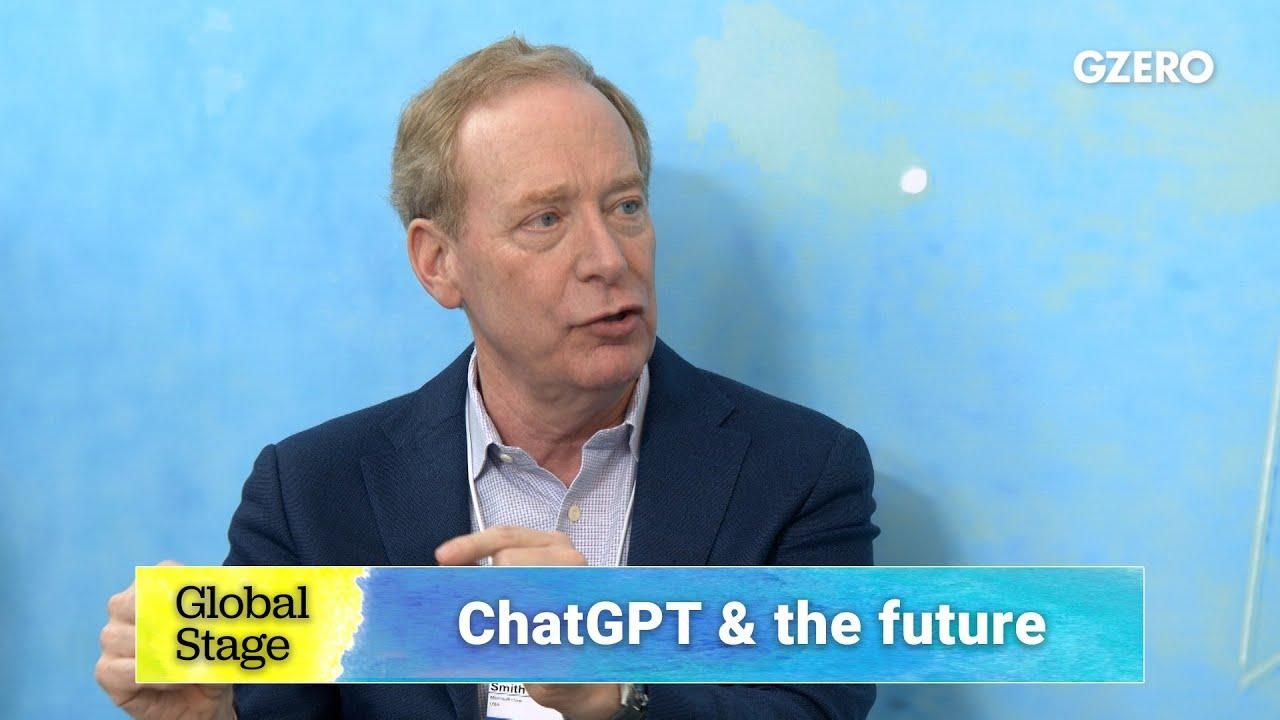Digital Governance
The transformative potential of artificial intelligence

The Transformative Potential of Artificial Intelligence | Global Stage | GZERO Media

Microsoft reportedly plans to invest $10 billion investment in OpenAI, the artificial intelligence company famous for creating the ChatGPT bot.
Why is the software giant doing this despite the threat that AI poses to democracy? Azeem Azhar, the founder of the Exponential View newsletter, puts the question to Microsoft President Brad Smith during a Global Stage livestream conversation hosted by GZERO in partnership with Microsoft.
First, Smith explains, Microsoft has strict compliance rules to ensure that ChatGPT doesn't do bad stuff. And that's crucial to integrate the tech into all its products so anyone can use it.
Second, he believes that generative AI — bots becoming as smart as humans — can be a tool for both creative expression and critical thinking.
Watch the full Global Stage conversation: AI at the tipping point: danger to information, promise for creativity
Walmart’s $350 billion commitment to American manufacturing means two-thirds of the products we buy come straight from our backyard to yours. From New Jersey hot sauce to grills made in Tennessee, Walmart is stocking the shelves with products rooted in local communities. The impact? Over 750,000 American jobs - putting more people to work and keeping communities strong. Learn more here.